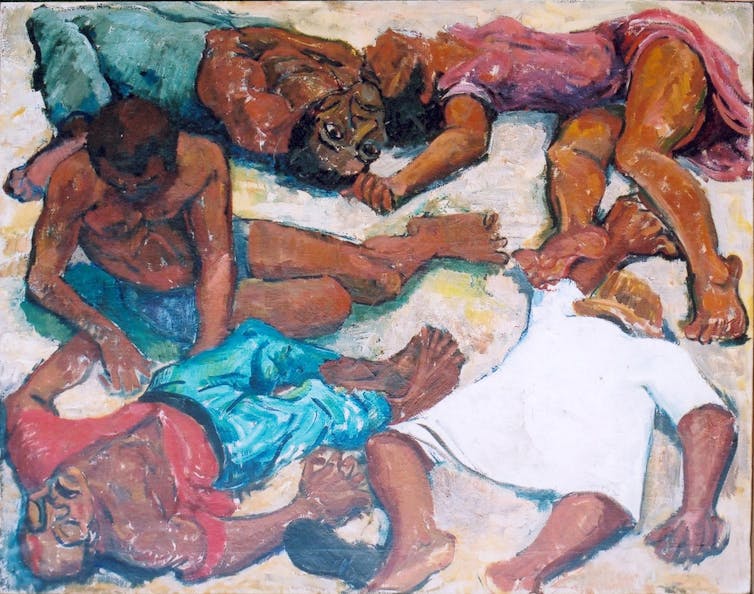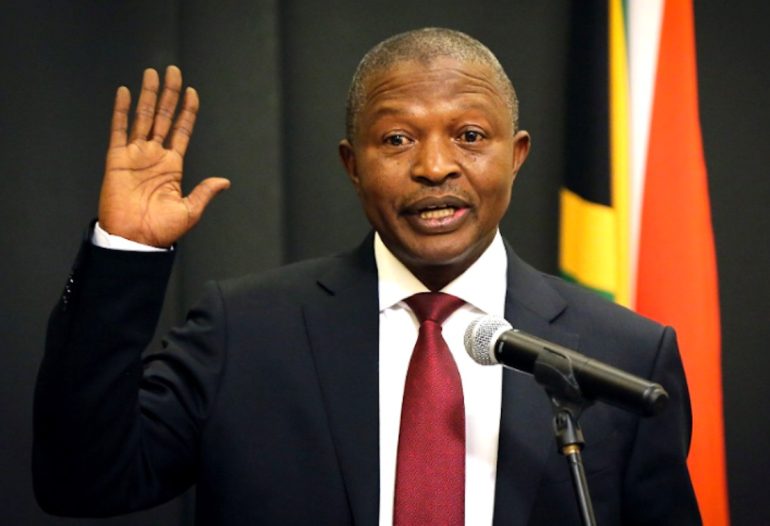How the 1960 Sharpeville massacre sparked the birth of international human rights law

Godfrey Rubens via Wikimedia Commons, CC BY-SA
Steven Wheatley, Lancaster University
It’s been 60 years since the Sharpeville massacre, when 69 unarmed civilians were killed by armed South African police on March 21 1960. The significance of the date is reflected in the fact that it now marks the International Day for the Elimination of Racial Discrimination.
Without the Sharpeville massacre, we may not have the international human rights law system we have today. In 1960, states had no binding international human rights obligations with oversight mechanisms. All that changed following the world’s moral outrage at the killings.
The story of March 21 1960 is told by Tom Lodge, a scholar of South African politics, in his book Sharpeville.
On that day, demonstrations against the pass laws, which restricted the rights of the majority black population in apartheid South Africa, began in the early morning in Sharpeville, a township in Transvaal. By lunchtime, the crowd outside the police station had grown to an estimated 20,000 people. All the evidence points to the gathering being peaceful and good-humoured.
Just after 1pm, there was an altercation between the police officer in charge and the leaders of the demonstration. Amid confusion, two shots were fired into the air by somebody in the crowd. In response, a police officer shouted in Afrikaans skiet or n’skiet (exactly which is not clear). This translates as “shot” or “shoot”. Another officer interpreted this as an order and opened fire, triggering a lethal fusillade as 168 police constables followed his example. By the end of the day, 69 people lay dead or dying, with hundreds more injured.
The power of an event
In my own research on international human rights law, I looked to complexity theory, a theory developed in the natural sciences to make sense of the ways that patterns of behaviour emerge and change, to understand the way that international human rights law had developed and evolved. One of the insights was that international law does not change, unless there is some trigger for countries to change their behaviour.
Significant reshaping of international law is often the result of momentous occurrences, most notably the first and second world wars. But change can also be prompted by seemingly minor events in global affairs such as the Sharpeville massacre – the so-called butterfly effect.
The term “human rights” was first used in the UN Charter in 1945. In 1946, the UN established the Commission on Human Rights, whose first job was to draft a declaration on human rights. The commission completed this task, under the chairmanship of Eleanor Roosevelt, when it finalised the Universal Declaration of Human Rights in 1948.
But attempts to transform this non-binding moral declaration into a binding legal code were immediately bogged down in cold war disputes. The logjam was only broken after the Sharpeville massacre as the UN decided to deal with the problem of apartheid South Africa.
Apartheid before the UN
The subject of racial discrimination in South Africa was raised at the UN General Assembly in its first session, in 1946, in the form of a complaint by India concerning the treatment of Indians in the country. But it was not until after Sharpeville that the UN made clear that the country’s system of racial segregation would no longer be tolerated.
As part of its response, the General Assembly tasked the UN Commission on Human Rights to prepare the Convention on the Elimination of All Forms of Racial Discrimination, the first global human rights treaty. It was adopted on December 21 1965. The argument against apartheid was now framed as a specific manifestation of a wider battle for human rights and it was the only political system mentioned in the 1965 Race Convention: nazism and antisemitism were not included.
The adoption of the Race Convention was quickly followed by the international covenants on Economic, Social and Cultural Rights and on Civil and Political Rights in 1966, introduced to give effect to the rights in the Universal Declaration of Human Rights.
‘Gross and systematic’ violations
As well as the introduction of the Race Convention, Sharpeville also spurred other moves at the UN that changed the way it could act against countries that breached an individual’s human rights.
At its inaugural session in 1947, the UN Commission on Human Rights had decided that it had “no power to take any action in regard to any complaints concerning human rights”. For the next two and a half decades, the commission held to this position on the basis that the UN Charter only required states to “promote”, rather than “protect”, human rights.
But in the aftermath of the Sharpeville massacre, the UN adopted a more interventionist stance to the apartheid state. As the number of UN members from Africa increased, the commission reversed its “no power to act” position and turned its attention to the human rights situation in South Africa.
The key developments were the adoption of Resolution 1235 in 1967, which allowed for the examination of complaints of “gross violations of human rights and fundamental freedoms, as exemplified by the policy of apartheid”, and Resolution 1503 in 1970, which allowed the UN to examine complaints of “a consistent pattern of gross and reliably attested violations of human rights”.
These resolutions established two important principles: that the human rights provisions in the UN Charter created binding obligations for member states, and the UN could intervene directly in situations involving serious violations of human rights.
This set the UN on the path towards the recognition of “all human rights for all”, and, eventually, the establishment of the Human Rights Council, and the Universal Periodic Review of the human rights performance of all states.
On this 60th anniversary of the Sharpeville massacre, the world should remember the contingency and fragility of the international human rights law system that we so easily take for granted today.![]()
Steven Wheatley, Professor of International Law, Lancaster University
This article is republished from The Conversation under a Creative Commons license. Read the original article.
Written by: Zuko
How the 1960 Sharpeville massacre sparked the birth of international human rights law
Similar posts
MORE ARTICLES

‘How are you 48?’ – Loyiso Bala showers wife Jennifer with birthday love

Former deputy president David Mabuza dies aged 64

WATCH: Sello Maake KaNcube on the stage play ‘Master Herold and the boys’ & the joys of his acting career

Kenyan Supreme Court grants inheritance rights to children born out of wedlock

WATCH: Castrol FastScan Mechanics Meet ups | Randburg
QUICK LINKS
UpComing Shows


The Best T in the City
With T Bose
He has held it down in the world of mid-morning radio with the best music, riveting topics, brilliant mixes and interesting guests. Every weekday, The Best T proves why he is the BEST by connecting to you like only your bro or favourite uncle could. He lets his listeners dictate the songs they want to hear in the ever-popular Top 10 at 10, and his Three Teaspoons never run out. Catch The Best T in the City Mondays to Fridays from 09h00 to 12h00.
close
Feel Good
With Andy Maqondwana
Feel good about feeling good! That's exactly what The Feel-Good show is about. An escape from the negativity that surrounds us, indulging you in good feels. Pass it on to one and all. Spread the good feeling around Gauteng with Andy Maqondwana.
close
The Hive
With Bonolo "Bee Sting" Molosiwa
Every "Hive" needs a Queen B and Bonolo "Bee Sting" Molosiwa is Kaya 959's honey who brings in the money. With her bubbly personality, infectious laugh, Bee Sting radiates positive energy which is all you need to get your weekend off to the best start. Don't miss the Afrobeat Dancehall Ragga (ADR) Top 10 on The Hive with Bee Sting every Saturday from 18h00 - 21h00.
close
Connect with Kaya 959
DownLoad Our Mobile App
© 2025 Kaya 959 | On The Street On The Air










